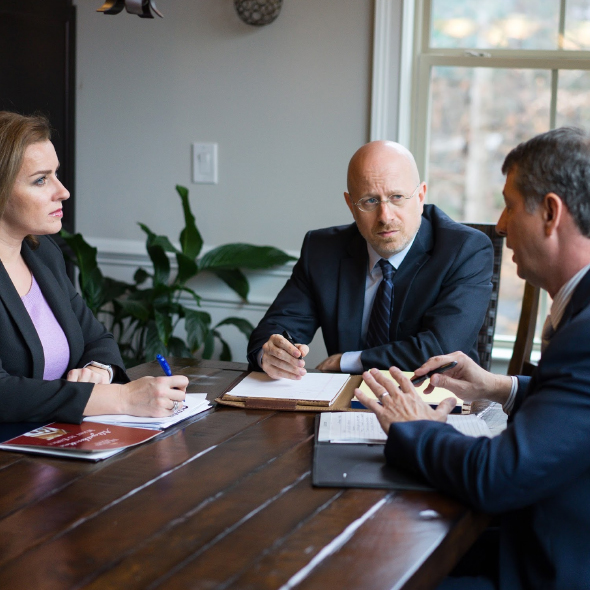
What is Mediation?
Mediation is a voluntary and private process in which a neutral party (the mediator) facilitates negotiation and resolution of the parties' dispute.
Unlike judges, mediators do not impose a settlement of the dispute. A mediator helps improve mutual understanding of the parties' respective cases and works toward possible solutions. Mediation will certainly lead to a greater understanding of the situation; how the dispute is resolved is ultimately decided by the parties and their attorneys with the assistance of the mediator.
Most family law mediations are conducted entirely in "caucus", meaning the parties and their attorneys are in different rooms. It is often helpful for the mediator to spend more time with one party then the other.
Mediation is an opportunity for each party to understand the dispute in greater depth than formal litigation allows. It is a confidential process, allowing for full and frank discussion. What is said in mediation is not admissible in court. The process requires honest discussion of each party's interests and the facts, arguments and law supporting their position.
Some additional observations:
- Most family cases can and should be resolved by mediation. The trial of a family matter is expensive, time consuming, and unpredictable. It can be emotionally painful, and damaging to the parties’ relationships with each other and their children.
- Mediation itself is a skill. Despite having mediated hundreds of cases I learn something new every time. My favorite aspect of mediating is resolving a case that didn’t seem likely to resolve, especially when the parties are satisfied with the outcome (and, sometimes, even come out of it a bit less frustrated with each other and the process). Skill in mediation comes from effort and experience.
- In Family Law, perhaps more than any other area of law, there is no substitute for experience in helping litigators and parties assess the situation. Similarly, experience representing parties is key to fashioning reasonable and realistic agreements.
- Real listening is fundamental to understanding a conflict; working the issues, creativity, patience and respectful discussion are all needed to get it resolved.